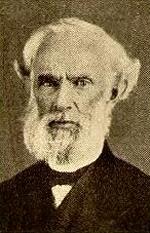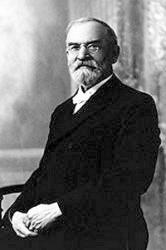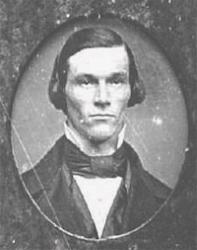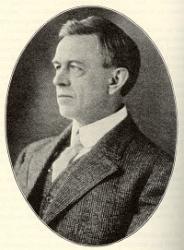Planning worship?
Check out our sister site, ZeteoSearch.org,
for 20+ additional resources related to your search.
- |
User Links
Person Results
‹ Return to hymnal






Export as CSV
J. H. Tenney

1840 - 1918 Hymnal Number: 17 Composer of "[Come to the fountain of mercy]" in Songs of Rejoicing John Harrison Tenney, 1840-1918
Born: November 22, 1840, Rowley, Massachusetts.
Born just after the presidential campaign of "Tippecanoe and Tyler, too," Tenney was named after American president William Henry Harrison. A deacon in the Congregational Church in Linebrook, Massachusetts, he edited or was associate editor of over 30 books, and contributed to hundreds more. His works include:
American Male Choir
Temperance Jewels, with Elisha Hoffman (Boston, Massachusetts: Oliver Ditson & Company, 1879)
Bells of Victory, with Elisha Hoffman (Boston, Massachusetts: Oliver Ditson & Company, 1888)
Gems of Gospel Song
Golden Sunbeams
Sharon’s Dewy Rose
Songs of Faith
Shining Light
Songs of Joy
Sparkling and Bright
Spiritual Songs, Nos. 1 and 2
Sweet Fields of Eden
The Beacon Light
The Singing School Banner
The Anthem Offering
The American Anthem Book
The Crown of Praise
Sources--
Hall, pp. 219-22
Music--
Asilomar
Bogotá
Beyond the Swelling Flood
Cancún
Come to Jesus
Ever Will I Pray
Hallowed Hour of Prayer
Jesus Is Passing This Way
Jubilate!
My Anchor Is Holding
Nothing Between
Onward Christian Soldiers
Sabbath Bell
San Francisco
We’ll Never Say Goodbye
Where Will You Spend Eternity?
--www.hymntime.com/tch
J. H. Tenney
Andrew Young
1807 - 1889 Person Name: A. Young Hymnal Number: 107 Author of "There Is a Happy Land" in Songs of Rejoicing Young, Andrew, second son of David Young, for more than fifty years a most efficient teacher in Edinburgh, was born at Edinburgh, April 23, 1807. After passing through a distinguished eight years' literary and theological course at the University of Edinburgh, he was appointed in 1830, by the Town Council, Head Master of Niddry Street School, Edinburgh, where he began with 80 pupils, and left with the total at 600. In 1840 he became Head English Master of Madras College, St. Andrews, where he was equally successful. He retired from St. Andrews in 1853, and lived in Edinburgh, where he was for some time the Superintendent of the Greenside Parish Sabbath School He died Nov. 30, 1889; Many of Mr Young's hymns and poems were contributed to periodicals. A collected edition of these was published in 1876, as The Scottish Highlands and Other Poems. His poems entitle him to rank in the first order of Scottish minor poets. Some of his hymns are very sweet. His "There is a happy land" (q. v.) has attained great popularity. [Rev. James Mearns, M.A.]
--John Julian, Dictionary of Hymnology (1907)
Andrew Young
John B. Sumner
1838 - 1913 Hymnal Number: 36 Composer of "[My Father is rich in houses and lands]" in Songs of Rejoicing
John B. Sumner
J. B. Herbert

1852 - 1927 Hymnal Number: 30 Composer of "[O, voices of angels just over the tide!]" in Songs of Rejoicing
J. B. Herbert
Love H. Jameson

1811 - 1892 Person Name: L. H. Jameson Hymnal Number: 114 Author of "To Be There" in Songs of Rejoicing Born: April 17, 1811, Jefferson County, Indiana.
Died: April 12, 1892, Indianapolis, Indiana.
Buried: Crown Hill Cemetery, Indianapolis, Indiana.
Love Humphreys Jameson was born in Jefferson County in what was then the Territory of Indiana on May 17, 1811, the son of Thomas Jameson. Thomas had moved from Virginia to Kentucky around 1800 and later to the Indiana Territory in 1810 or early 1811. Thomas’s parents were members of the Calvinistic Kirk of Scotland and his wife’s parents held the views of the Church of England, but the family became Christians in 1816 with Love’s father and mother being baptized by John McClung, a young associate of Barton Warren Stone. Love, whose education was attended with all the difficulties associated with frontier life and was mostly under the tuition of his parents, was baptized in the fall of 1829 during a protracted meeting with Beverly Vawter and then preached his first sermon that same year on Dec. 25, following which he began preaching the gospel regularly.
From 1830 to 1834, Jameson taught school during the winters and made preaching trips in the summers. One of his mentors was Walter Scott, with whom he frequently travelled and worked. Moving to southern Ohio, in 1834, he, along with Scott, attended the famous debate of 1837 between Alexander Campbell and Bishop Purcell at Cincinnati, OH. In addition, he wrote frequently for Campbell’s paper, The Millennial Harbinger, in which Campbell spoke of him as the brother “whose praise is in all the churches in Indiana.” After preaching at various churches in Hamilton County, OH, Jameson worked with the church in Dayton from 1835 to 1837, when he married Elizabeth M. Clark. Also, in the closing years of B. W. Stone’s life, Jameson often accompanied the elderly preacher on his journeys. In 1840 he returned to Indiana and located at Madison, IN, the following year. His wife died of an apoplectic stroke suddenly soon afterwards, and he married Elizabeth R. Robinson in 1842, moving to Indianapolis, IN, which became his headquarters for the rest of his life.
In 1845, Jameson was asked, along with John O’Kane, to evangelize in the southwestern part of the state. Then after 1854, he made regular preaching trips into Ohio, Kentucky, Western Missouri, Illinois, New York, and even portions of New England. “There is a Habitation” was penned about 1860, with both words and original music by Jameson, but it never achieved any degree of popularity because of its slow, ponderous, torpid melody. The song as we know it was first published under the title, “O Sion, Sion,” in the New Christian Hymn and Tune Book, Part II, compiled at Cincinnati, OH, in 1882 by James Henry Fillmore. Jameson, who also provided the lyrics for “Night, With Ebon Pinion,” died ten years later, on May 1, 1892, in Indianapolis.
--hymnstudiesblog.wordpress.com
Love H. Jameson
William Fairfield Warren

1833 - 1929 Person Name: W. F. Warren Hymnal Number: 84 Author of "Homeward Bound" in Songs of Rejoicing Warren, William Fairfield, D.D., was born at Williamsburg, Massachusetts, in 1833, and graduated at the Wesleyan University in 1853. After spending some time in Germany, he was appointed Professor of Systematic Theology in the Methodist Episcopal Mission Institute at Bremen, in 1861. Returning to America in 1866, he held some important appointments there, ultimately becoming President of Boston University, in 1873. His hymn, "I worship Thee, O Holy Ghost" (Whitsuntide), was contributed to the American Methodist Episcopal Hymnal, at the request of the editorial committee, in 1877, and was published therein in 1878. It has passed into other collections.
-- John Julian, Dictionary of Hymnology (1907)
==========================
Warren, William, D.D. (Williamsburg, Massachusetts, March 13, 1833--December 6, 1929). He prepared for college at East Greenwich Academy, graduated A.B., Wesleyan University, took training at Andover Theological Seminary, and continued his studies at the Universities of Berlin and Halle. He was the recipient of honorary degrees from Boston, Wesleyan, and Ohio Wesleyan Universities. Ordained a Methodist Episcopal minister in 1855, after preaching in Boston for five years he returned to Germany where for a like term of years he was Professor of Systematic Theology at Mission Institute, Bremen, which later became Martin Institute at Frankfort. He returned to Boston to occupy a similar professorship at the Theological Seminary and to become Acting President when the Methodist Biblical Institute moved there from Concord, New Hampshire. His return gave impetus to the plan under way which eventuated the establishment of Boston University in 1869. Becoming President of the University in 1873, he was Dean of its School of Theology, 1903-1911, and made President Emeritus in 1923.
--Robert G. McCutchan, DNAH Archives
William Fairfield Warren
Calvin S. Harrington

1826 - 1886 Person Name: C. S. Harrington Hymnal Number: 84 Composer of "[Out on an ocean all boundless we ride]" in Songs of Rejoicing Born: May 17, 1826, St. Johnsbury, Vermont.
Died: February 16, 1886, at his home in Middletown, Connecticut.
Buried: Indian Hill Cemetery, Middletown, Connecticut.
Harrington graduated from Wesleyan University in 1852. From 1852 to 1855, he taught Latin at the New Hampshire Conference Seminary, Sanbornton Bridge, New Hampshire; from 1855 to 1860, he served as president of the seminary. From 1861 to 1863 he was a professor of Greek at Wesleyan University; from 1863 to his death, he was a professor of Latin there.
--www.hymntime.com/tch/
Calvin S. Harrington
Anna Shepherd
Person Name: Annie Shepherd Hymnal Number: 43 Author of "Around the Throne" in Songs of Rejoicing
Anna Shepherd
Charles M. Fillmore

1860 - 1952 Person Name: C. M. F. Hymnal Number: 4 Author of "Let Us Go to the House of the Lord" in Songs of Rejoicing Charles Millard Fillmore, 1860-1952
Born: July 15, 1860, Paris, Illinois.
Died: September 17, 1952, Indianapolis, Indiana.
Fillmore won a music scholarship at the Cincinnati College of Music, then taught for a year at Bath Seminary in Owingsville, Kentucky. He then traveled for about a year and taught singing classes in various parts of America. He then went for additional music studies in Cincinnati, Ohio. He studied for the ministry at Butler University in Indianapolis, Indiana, graduating in 1890. He pastored in Lafayette, Indiana; Shelbyville, Indiana; was "State Evangelist" (for one year) in Ogden, Utah; Peru, Indiana; Carthage, Ohio; and Hillside Church, Indianapolis, Indiana. He was one of the editors of the temperance paper Clean Politics, and of The Musical Messenger. He wrote several hundred Gospel songs in his lifetime.
--www.hymntime.com/tch
Charles M. Fillmore
Joshua King
1789 - 1858 Hymnal Number: 119 Author of "When His Salvation Bringing" in Songs of Rejoicing See John King.
Joshua King


 My Starred Hymns
My Starred Hymns


